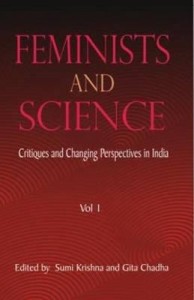 In 2015 STREE published the first volume of a collection of essays called Feminists and Science: Critiques and Changing Perspectives in India. It has been edited by Sumi Krishna and Gita Chadha. The principle behind these two volumes of essays is to have a “more comprehensive and grounded understanding of gender and science in India”. According to University Grants Commission (UGC) data women in medicine accounted for 44 per cent of the total, the same percentage as in the ‘arts’ ( i.e. humanities and social sciences together). Women in science made up 40 per cent, which was slightly higher than women in commerce ( 37 per cent). In the science-based professions, the ratio of women to men was about one in five: engineering 21 per cent; veterinary science 21 per cent; agriculture 17 per cent.
In 2015 STREE published the first volume of a collection of essays called Feminists and Science: Critiques and Changing Perspectives in India. It has been edited by Sumi Krishna and Gita Chadha. The principle behind these two volumes of essays is to have a “more comprehensive and grounded understanding of gender and science in India”. According to University Grants Commission (UGC) data women in medicine accounted for 44 per cent of the total, the same percentage as in the ‘arts’ ( i.e. humanities and social sciences together). Women in science made up 40 per cent, which was slightly higher than women in commerce ( 37 per cent). In the science-based professions, the ratio of women to men was about one in five: engineering 21 per cent; veterinary science 21 per cent; agriculture 17 per cent.
These are some of the statistics for India today. But this book has some fabulous essays like Mandira Sen’s “A Gender-Sensitive Practice of Psychiatry in India: The Story of Dr. Ajitha Chakraborty”, the first woman practising psychiatry in India or Sumi Krishna’s essay, “Recognizing Gender Bias in Life Sciences”. Yet the point remains that despite all these women scientists making fantastic contributions to their disciplines, gender bias and sexism exists. Mina Swaminathan points out in her essay, “Differences in gender roles are still usually ascribed to biological differences rather than social determinants, and the idea that gender relations are power relations is even harder to communicate.” ( p.218) Despite these challenges India has produced some eminent women scientists such as Dr Janaki Ammal. ( 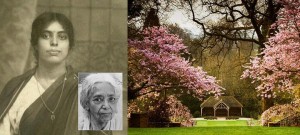 “Remembering Dr Janaki Ammal, pioneering botanist, cytogeneticist and passionate Gandhian” by Geeta Doctor. http://scroll.in/article/730186/remembering-dr-janaki-ammal-pioneering-botanist-cytogeneticist-and-passionate-gandhian ) . She was a plant scientist, who put the sweetness into our sugarcane varieties and served as the head of the Botanical Survey of India in the
“Remembering Dr Janaki Ammal, pioneering botanist, cytogeneticist and passionate Gandhian” by Geeta Doctor. http://scroll.in/article/730186/remembering-dr-janaki-ammal-pioneering-botanist-cytogeneticist-and-passionate-gandhian ) . She was a plant scientist, who put the sweetness into our sugarcane varieties and served as the head of the Botanical Survey of India in the 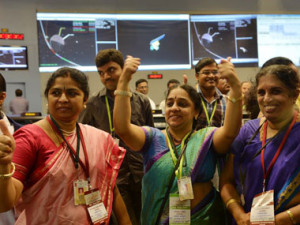 1950s. Recently women scientists at ISRO were seen celebrating the successful launch of Mangalyaan mission to Mars. Read Sandip Roy’s fabulous article documenting some of the amazing Indian women scientists. ( “Mangalyaan’s unexpected gift: The glimpse of Isro’s ‘Rocket Women'” 25 September 2015 http://bit.ly/1XqMaH9 )
1950s. Recently women scientists at ISRO were seen celebrating the successful launch of Mangalyaan mission to Mars. Read Sandip Roy’s fabulous article documenting some of the amazing Indian women scientists. ( “Mangalyaan’s unexpected gift: The glimpse of Isro’s ‘Rocket Women'” 25 September 2015 http://bit.ly/1XqMaH9 )
Earlier this year Nobel Laureate, Tim Hunt, a biochemist, made some 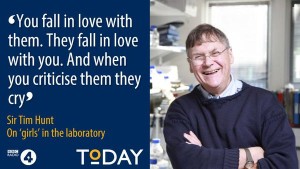 highly inappropriate gender discriminatory remarks at a conference in South Korea, “Let me tell you about my trouble with girls,” Mr. Hunt told an audience at the World Conference of Science Journalists in South Korea. “Three things happen when they are in the lab: You fall in love with them, they fall in love with you, and when you criticize them they cry.” Given how these gender biases towards women scientists are so deeply embedded in the system, books like Feminists and Science are very welcome.
highly inappropriate gender discriminatory remarks at a conference in South Korea, “Let me tell you about my trouble with girls,” Mr. Hunt told an audience at the World Conference of Science Journalists in South Korea. “Three things happen when they are in the lab: You fall in love with them, they fall in love with you, and when you criticize them they cry.” Given how these gender biases towards women scientists are so deeply embedded in the system, books like Feminists and Science are very welcome.
Here is a list of contents:
Preface xi
Introduction
Understanding Gender and Science in India: xiii
Institutions and Beyond Sumi Krishna
Tracking a Consciousness: Questions, Dilemmas and
Conundrums of Science Criticism in India Gita Chadha xxxvi
1 Feminists Discuss Caste and Gender in Science: An Online Dialogue 1
Anita Mehta, Chayanika Shah, Gita Chadha, Mary E John, Mina Swaminathan, Prajval Shastri and Sumi Krishna
2 Unravelling the ‘Gender-Merit’ Conundrum:
Do Women Deserve to Do Science in India? 22
Jayasree Subramanian
3 Re-Cognising Gender Bias in the Life Sciences 52
Sumi Krishna
4 The Science of Psychology: Where Is Gender? 79
U.Vindhya
5 Science, Gender and Reproductive Technologies: A Case of Disability 96
Anita Ghai and Rachana Johri
6 Gender Inequities in the Science World: An Experiential Perspective 122
Prajval Shastri
7 A Gender-Sensitive Practice of Psychiatry in India? The Story of Ajita Chakraborty 132
Mandira Sen
8 Women Water Professionals in the Maharashtra Water Bureaucracy 153
Seema Kulkarni
9 Women, Livestock and Rural Livelihoods: Challenges for Veterinary Scientists 185
Sagari R. Ramdas
10 Bridging the Gap between Natural Sciences and Gender Studies: Notes on a Pedagogical Experiment 211
Mina Swaminathan
11 Integrating Gender into the Curricula of Health Professionals: Experiences and Reflections 235 K. Sundari Ravindran
12 Teaching Feminist Science Studies in India: An Experiment 257
Chayanika Shah and Gita Chadha
13 En-Gendering Bodies of Knowledge: Scientific Institutions and the Production of Science in Science Fiction 273
Suchitra Mathur
List of Contributors 297
Table of Contents, Vol2 301
Sumi Krishna and Gita Chadha ( Eds.) Feminists and Science: Critiques and Changing Perspectives in India ( Vol 1) STREE, an imprint of Bhatkal and Sen, Kolkata, 2015. Pb. pp. 310 Rs 500
30 November 2015
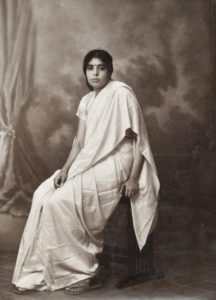 Janaki Ammal was a botanist known for her research in sugarcane. She was trained abroad, worked at Kew Gardens, London and returned to independent India at the invitation of Prime Minister Jawaharlal Nehru. Earlier this year her niece, Geeta Doctor, wrote a magnificent piece about her aunt in the digital ezine, Scroll: http://scroll.in/article/730186/remembering-dr-janaki-ammal-pioneering-botanist-cytogeneticist-and-passionate-gandhian . In October 2016, the Botanical Survey of India, Kolkatta, inaugurated an exhibition on the eminent scientist. ( http://www.thehindu.com/sci-tech/science/kolkata-celebrates-botany-legend-janaki-ammal-with-exhibition/article9227048.ece )
Janaki Ammal was a botanist known for her research in sugarcane. She was trained abroad, worked at Kew Gardens, London and returned to independent India at the invitation of Prime Minister Jawaharlal Nehru. Earlier this year her niece, Geeta Doctor, wrote a magnificent piece about her aunt in the digital ezine, Scroll: http://scroll.in/article/730186/remembering-dr-janaki-ammal-pioneering-botanist-cytogeneticist-and-passionate-gandhian . In October 2016, the Botanical Survey of India, Kolkatta, inaugurated an exhibition on the eminent scientist. ( http://www.thehindu.com/sci-tech/science/kolkata-celebrates-botany-legend-janaki-ammal-with-exhibition/article9227048.ece )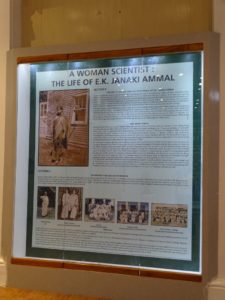 Natural Resources and Scientific Research of the Government of India had accepted her scheme for the reorganisation of the BSI.
Natural Resources and Scientific Research of the Government of India had accepted her scheme for the reorganisation of the BSI.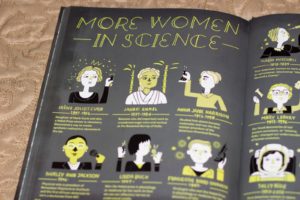 The Ladies Finger website too carries a wonderful profile of Janaki Ammal: http://theladiesfinger.com/janaki-ammal/ .
The Ladies Finger website too carries a wonderful profile of Janaki Ammal: http://theladiesfinger.com/janaki-ammal/ .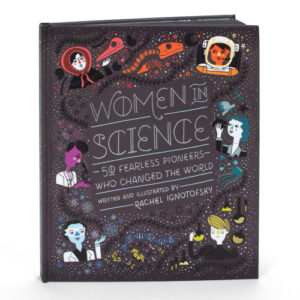 maginificently illustrated book Women in Science: 50 Fearless Pioneers who Changed the World. It has been written and illustrated by Rachel Ignotofsky. ( The other Indian women scientist mentioned in the book is Tessy Thomas who was instrumental in creating the most powerful long-range nuclear missile ever.)
maginificently illustrated book Women in Science: 50 Fearless Pioneers who Changed the World. It has been written and illustrated by Rachel Ignotofsky. ( The other Indian women scientist mentioned in the book is Tessy Thomas who was instrumental in creating the most powerful long-range nuclear missile ever.)



